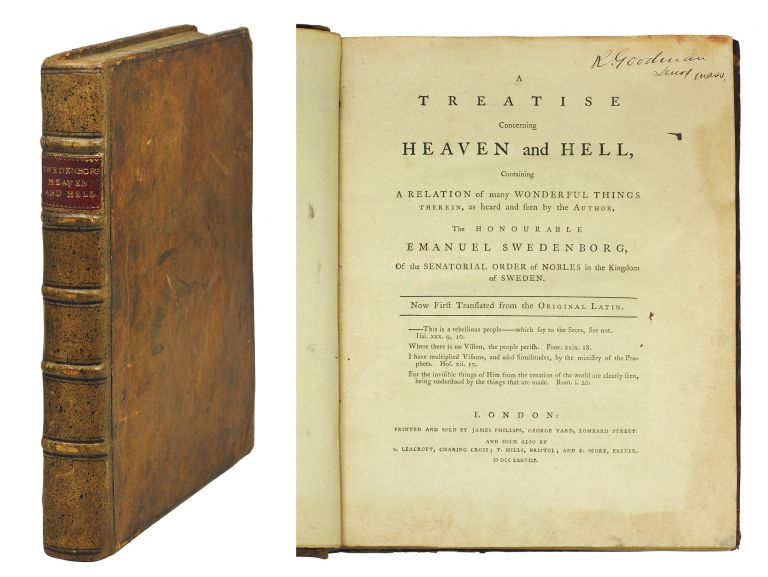Emanuel Swedenborg
Emanuel Swedenborg (1688-1772) was a Swedish scientist, philosopher, theologian, and mystic who made significant contributions in various fields, including anatomy, physiology, mineralogy, and metallurgy. He is also known for his spiritual teachings and his claim to have had mystical experiences and visions that led him to write extensively on religious and metaphysical topics.
Biography: Swedenborg was born in Stockholm, Sweden, on January 29, 1688, to a prominent Lutheran family. He studied at the University of Uppsala and, later, traveled extensively throughout Europe to study natural sciences and mathematics. He worked as an engineer and inventor and his scientific work earned him recognition throughout Europe. He was elected a member of the Royal Society of Sciences in Uppsala in 1729 and, later, of the Royal Society in London in 1744.
In the 1740s, Swedenborg began to have spiritual experiences that he believed were revelations from God. He claimed to have had conversations with angels and spirits, and he wrote numerous works on theology and spiritual topics based on these experiences. He believed that his spiritual experiences had given him insight into the nature of God, the afterlife, and the spiritual world.
Swedenborg’s writings covered a wide range of subjects, including the nature of God, the afterlife, and the spiritual world. His ideas influenced many thinkers in the fields of philosophy, theology, and literature, including William Blake, Ralph Waldo Emerson, and Henry James Sr. Swedenborgianism, a religious movement based on his teachings, also developed in the 19th century and has followers today.
Bibliography: Swedenborg wrote extensively on a wide range of subjects, including religion, philosophy, and science. Some of his most famous works include:
-
“Heaven and Hell” (1758) – This book describes Swedenborg’s visions of the afterlife and his ideas about the nature of heaven and hell. Quote: “Heaven is not a place or a condition, but a state of mind where one is in harmony with the divine love and wisdom.”
-
“Divine Love and Wisdom” (1763) – This book discusses Swedenborg’s ideas about the nature of God and the universe. Quote: “The universe is not merely a collection of things and forces, but a living organism that reflects the divine love and wisdom.”
-
“The True Christian Religion” (1770) – This book outlines Swedenborg’s ideas about the nature of Christianity and the role of the church. Quote: “True Christianity is not about dogma or ritual, but about living a life of love and service to others.”
Influence: Swedenborg’s ideas have influenced many thinkers throughout history, particularly in the fields of philosophy, theology, and literature. Some of the notable figures who were influenced by Swedenborg include:
-
William Blake – The English poet and artist was deeply influenced by Swedenborg’s spiritual teachings, and his work reflects many of Swedenborg’s ideas. Quote: “Swedenborg was a divine teacher, but not a Christian.”
-
Ralph Waldo Emerson – The American essayist and philosopher was also influenced by Swedenborg’s ideas, particularly his views on the nature of the universe and the divine. Quote: “Swedenborg is the clearest statement of the spiritual fact, and his science of the spiritual world is the only rational account.”
-
Henry James Sr. – The American theologian and philosopher was a devoted follower of Swedenborg and helped to spread his ideas in the United States. Quote: “Swedenborg’s system of thought is the most complete and consistent of all known systems.”

Today, Swedenborg’s influence can still be seen in a variety of fields, including literature, philosophy, and spirituality. His ideas about the spiritual world, the nature of God, and the afterlife continue to inspire and influence people around the world. Swedenborgianism, the religious movement based on his teachings, still has followers today, and his works continue to be studied and interpreted by scholars and enthusiasts.
In addition to his influence on individual thinkers, Swedenborg’s ideas have also had an impact on broader cultural movements. For example, his ideas about the spiritual world and the interconnectedness of all things have been cited as precursors to the New Age movement, and his emphasis on personal experience and direct revelation has been seen as a precursor to the Romantic movement in literature and art.
Despite the controversies that surrounded his ideas during his lifetime, Swedenborg’s influence has endured, and his legacy continues to inspire and challenge people today. His unique blend of scientific rigor and spiritual insight, combined with his profound personal experiences, has made him a fascinating figure for generations, and his impact on intellectual and spiritual history is likely to endure for many years to come.
